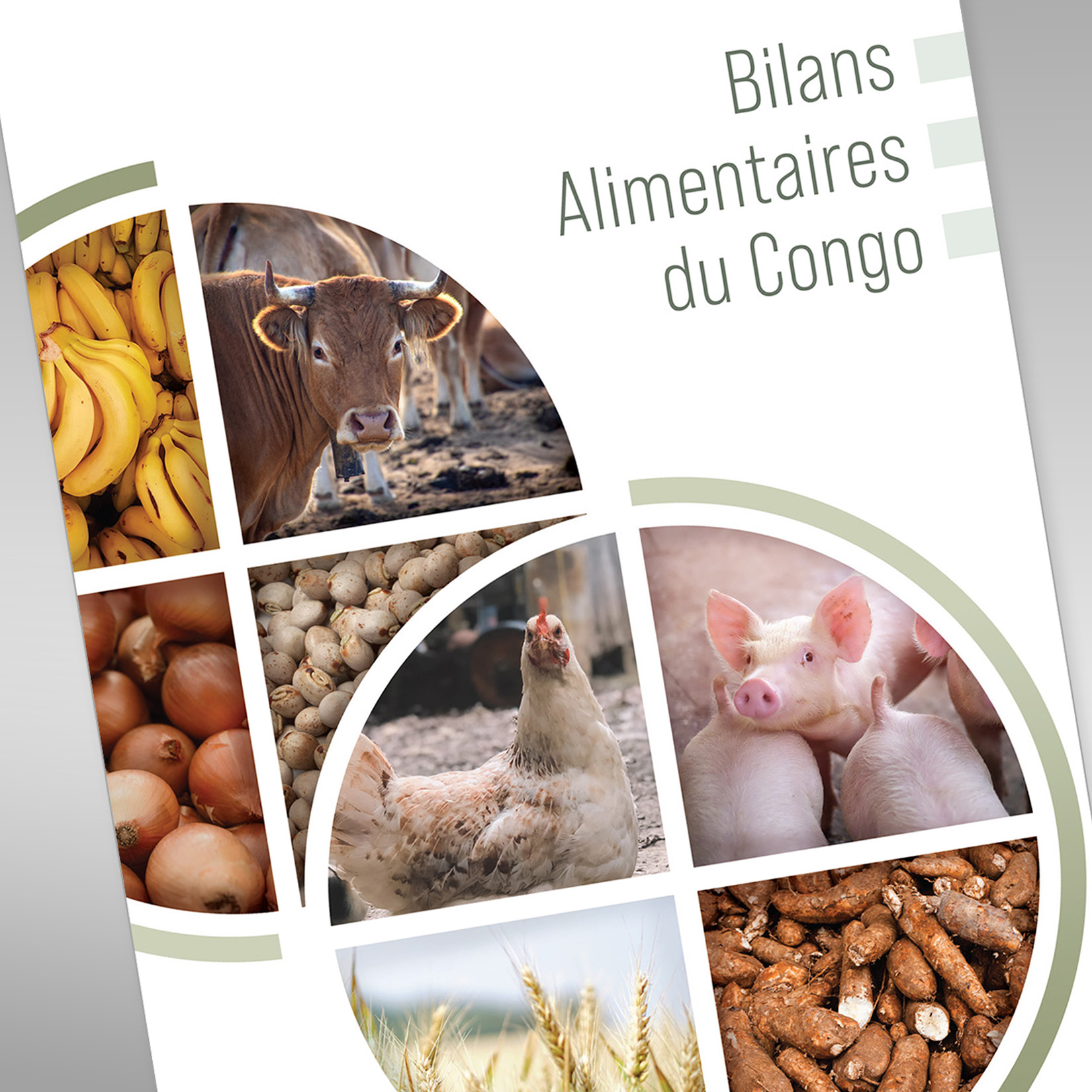Food and Agriculture Organization of the United Nations (FAO), 2023




Context
The document presents the first-ever Food Balance Sheets (FBS) for the Republic of Congo, covering the period from 2014 to 2019. It provides an overview of the key results and describes the basic concepts related to FBS, the methodological framework for its development, and an analysis of caloric, protein, and lipid availability. It also examines the Self-Sufficiency Rate (SSR) and the Import Dependence Rate (IDR). Additionally, it addresses the challenges encountered during the study, the lessons learned, and concludes with future perspectives.
Objectives
- To Develop Food Balance Sheets: The goal was to create comprehensive FBS for Congo, analyzing the availability of food and nutrients such as calories, proteins, and lipids, as well as understanding the country’s food self-sufficiency and dependency on imports.
- To Inform Food Security Policies: The results would serve as a tool for monitoring food security and progress toward Sustainable Development Goals (SDGs), as well as to guide future strategies in the agricultural sector.
- To Establish a Permanent Data Collection System: One key objective was to create a permanent, integrated system for collecting agricultural statistics in the country.
Solution
The elaboration of the Food Balance Sheets followed a detailed methodological approach, inspired by the guidelines from the FAO. The steps included:
- Formation of the Technical Working Group (TWG): The group was established and trained on the methodology for compiling FBS.
- Roadmap Development: A roadmap was created for the group to collect, process, and validate the data needed for the FBS.
- Data Collection and Analysis: Data were gathered from various national statistical sources, covering production, external trade, stock variation, food transformation, availability for human consumption, and non-food uses. In cases where data were missing, estimations were made using parameters like loss rates and extraction rates.
- Report Drafting: After validating the FBS results, a report covering the 2014-2019 period was written, summarizing key insights and findings.
Results
- Energy Availability: The average daily per capita energy availability in Congo during the period was 2,230 kcal. Plant-based products contributed 92% of this energy, with cassava providing the largest portion (20.69%).
- Nutrient Availability: The average daily per capita protein and lipid availability were 47g and 43g, respectively. Plant-based foods also supplied most of these nutrients.
- Self-Sufficiency and Import Dependence: The Self-Sufficiency Rate (SSR) for all products averaged 88.51%, indicating that Congo’s agricultural production covers a significant portion of national food availability. However, the Import Dependence Rate (IDR) was 12.83%, with the country relying heavily on imports for animal products.
Challenges and Limitations
- Data Gaps: One of the major constraints was the lack of necessary data, particularly concerning production and trade. This led to the need for estimations and imputations for many products, limiting the comprehensiveness of the FBS.
- Incomplete Coverage: Not all food products consumed in Congo were included in the study due to data limitations.
Lessons Learned and Future Perspectives
- Collaboration is Key: The exercise highlighted the importance of strong collaboration between the Ministry of Agriculture, Fisheries, and Livestock and other data-providing institutions for successful FBS compilation.
- Food Security Monitoring: The indicators derived from the FBS provide valuable insights into food security and can be used to track progress toward the SDGs.
- Need for Permanent Data Collection: The exercise underscored the need to establish a permanent and integrated system for collecting agricultural statistics to improve data availability and quality. The TWG should continue its work in this area to ensure the ongoing development of FBS for the country.
By improving the collection and analysis of agricultural data, the Republic of Congo can better monitor its food security and make informed policy decisions to enhance food self-sufficiency and reduce dependency on imports.
4o


